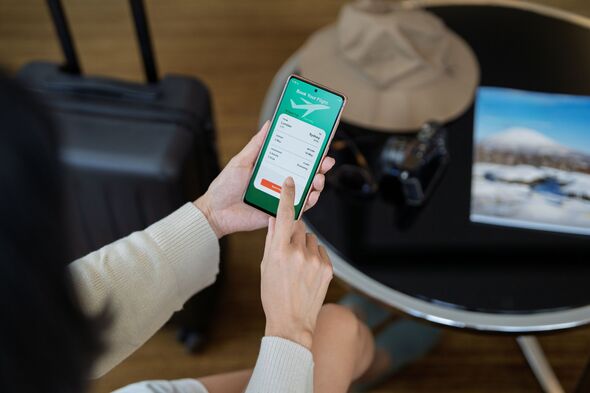

An estimated two in five (42%) Brits have plans to travel abroad this year, which equates to around 29 million people, driving increased demand for holiday advice. Searches for holiday abroad related queries have skyrocketed (up 32% in the past three months), with more than 43,000 people turning to Google each month for tips on planning their trips.
However, amid the excitement, many travellers unknowingly make simple mistakes that end up costing them extra money, time and stress. From unexpected baggage fees at the boarding gate to hidden mobile data charges, even seasoned holidaymakers can fall into these traps. But with a little planning, these common travel errors can be easily avoided.
Don't miss... Chaos in Spain as American tourists abandoned country for 1 reason [LATEST]
Travel Expert, Jane Bolton from tailor-made package ski holiday operator, Erna Low shares the eight most common mistakes Brits make when travelling, and how to steer clear of them for a stress-free trip.
1. Not reading the fine print in car hire agreements
Hiring a car abroad may seem straightforward, but many travellers get caught out by hidden charges, insurance exclusions or strict return policies buried in the fine print.
Some car hire contracts include excess charges of over £1,000 for every minor damage and may add unexpected fees for fuel, mileage or additional drivers.
How to avoid it:
Before signing anything, carefully review the full terms and conditions, including insurance coverage, deposit requirements and fuel policies.
Instead of paying costly damage waivers at the rental desk, consider purchasing an independent excess insurance policy in advance. These can cost as little as £33 for a week and provide much better coverage.
Always take clear photos of the car before and after use to protect yourself from unfair damage claims on return.
READ MORE... Alert to anyone going to Majorca on holiday this summer [LATEST]
2. Forgetting to check in online or entering incorrect passenger details
Forgetting to check in online can lead to extra charges at the airport. Budget airlines, including Ryanair, now charge passengers who fail to check in online, meaning you could face an unexpected fee if you don’t go through this process before you arrive.
Entering the wrong name when booking flights, such as a nickname instead of your full passport name, or booking under a married surname when your passport is still in your maiden name, can cause major issues at check in.
Some airlines charge hefty fees for name corrections or may even require you to rebook your ticket entirely.
How to avoid it:
When booking flights, double check that all passenger details match the passport exactly, this includes middle names if required.
Before you set off for the airport, ensure the name on your boarding pass is correct to avoid expensive name change fees at the desk.
3. Paying extra to sit together when you might not need to
Many airlines now charge passengers for seat selection, leading travellers to pay extra to sit together when it might not be necessary.
On quieter flights, groups are often seated together automatically, meaning you could be spending money for no reason.
Even on busier flights, some airlines still try to seat families and groups together where possible, so paying for seat selectionisn’t always needed.
How to avoid it:
To improve your chances of sitting together for free, check in online as early as possible. Some websites and apps even offer seat alerts, notifying you if better seats become available closer to departure.
4. Doing all your packing last minute
Rushing to pack the night before a trip often leads to overpacking, forgetting essentials or struggling to fit everything into hand luggage.
This can lead to extra baggage fees, last minute airport purchases or simply a stressful start to your holiday. For instance, some airlines like easyJet, have strict cabin baggage policies.
If items like helmets don’t fit within the specified dimensions, passengers may face additional charges.
A lack of preparation can also mean missing key travel documents, adapters or weather appropriate clothing, all of which can be expensive or difficult to replace once abroad.
How to avoid it:
Create a packing list in advance and pack gradually over a few days. Check airline baggage policies beforehand, especially regarding sports equipment or bulky items, to ensure compliance with weight and size limits.
Packing cubes can also help keep things organised and maximise space allowing you to fit more in your case.

9 PerFlyer